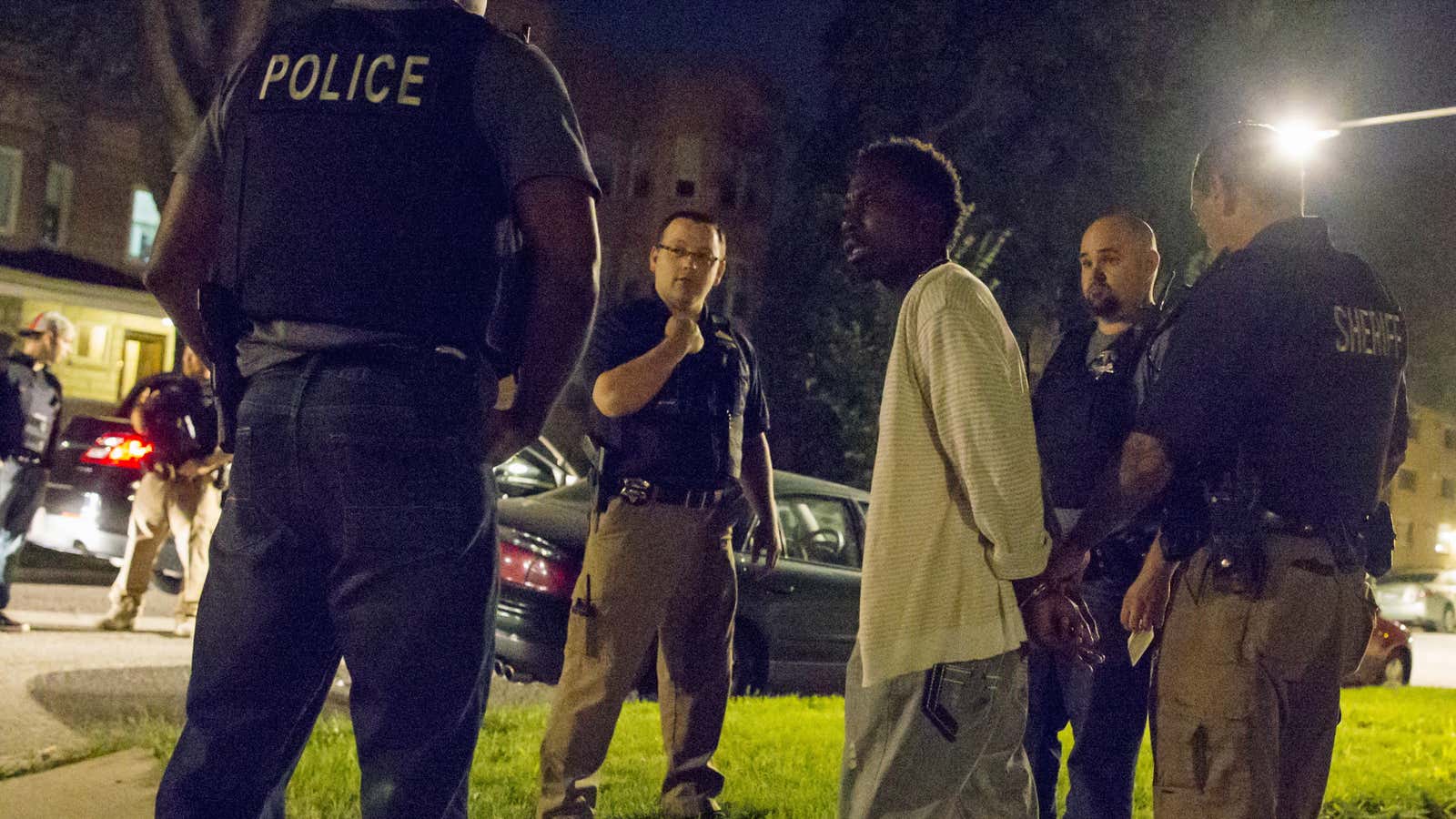This election, 6.1 million Americans were unable to vote because of their criminal convictions.
Many US citizens consider the right to vote one of our most fundamental–we fought a war over representation, after all—but they do not realize that a felony conviction, in many states, can cause a citizen to lose that fundamental right, even after time has been served and the ex-felon is done with state supervision.
The practice of felony disenfranchisement in the US is still hotly debated today. Statistics from The Sentencing Project show that felony disenfranchisement disproportionately harms people of color, especially black voters. For example, statistics gathered prior to this presidential election show that felony disenfranchisement laws blocked 5.85 million otherwise qualified citizens from voting—2.5% of the total electorate, but 7.7% of black voters. In certain places, this racially disparate impact is more profound: Florida, Virginia, and Kentucky disenfranchise 20% of their black voters.
Such statistics are eye catching, but the secondary consequences that follow from this disenfranchisement are harder to spot. What happens to a person’s civic engagement after brushes with the criminal justice system? What happens to communities when large proportions of those communities are unable to vote?
Currently, every state except Maine and Vermont prevents felons from voting while in prison; and the majority of states ban felons from voting while on parole and while on probation. Depending on the circumstances, 8 states ban ex-felons from voting even after they’re finished with all state supervision.
Additionally, according to The Sentencing Project: “Each state has developed its own process of restoring voting rights to ex-offenders, but most of these restoration processes are so cumbersome that relatively few persons are able to take advantage of them.” Even if an ex-felon has served his time and by law should have his right to vote restored, the burden of restoration can be high.
But Vesla Weaver, Yale University professor of political science and the author (with Amy E. Lerman) of Arresting Citizenship: The Democratic Consequences of American Crime Control, is quick to point out that even low-level brushes with the criminal justice system can depress civic enthusiasm. According to Weaver, “You can be arrested and never be charged, never see a courtroom. Just having an arrest on your record decreases a person’s likelihood of voting.” When we’re talking about people who decrease their civic engagement, “we’re not just talk about people serving long prison sentences.”
“What is staggering” says Eisha Jain, professor at the University of North Carolina School of Law who specializes in criminal law and civil rights, “is the footprint of the criminal justice system.” While it’s a well-known fact that the United States has a high rate of incarceration, Jain notes that “incarcerated individuals are a really small fraction of the total number of people” who come in contact with the criminal justice system. There are also all of those “who are merely arrested,” or know people who were arrested. Sometimes, “contact with the criminal justice system through low-level arrests can be the main form of government involvement” that communities ever see.
This conclusion is backed up by the research of Megan Comfort (author of Doing Time Together: Love and Family in the Shadow of the Prison) and Traci Burch (Trading Democracy for Justice: Criminal Convictions and the Decline of Neighborhood Political Participation). For example, Weaver explains, “If you live in a neighborhood where there is a concentrated number of people” who can’t vote due to felony disenfranchisement, then you, too, are less likely to vote. What Weaver calls a “diminished relationship to the state” touches all people in a community.
When people don’t engage with their communities, either civically or professionally, a cycle of crime and criminal behavior can become entrenched. This, as Weaver says, is criminogenic. Even something like being banned from jury duty has consequences, according to Weaver, who noted that some counties disallow up to half of black male residents due to felony convictions. (The rules for who can serve on a jury varies state to state, but many states ban residents with felony convictions from serving.) If half of your demographic group can’t serve on a jury, then you are far less likely to receive a jury of your peers should you have to go to trial.
Frustratingly, a lot of this could be avoided. According to Weaver, even if a particular state allows ex-felons to vote, “they don’t advertise it.” Through this “informal effect,” our society ends up with “a group of people who don’t know that they can vote” simply because they are “confused.” In Alabama, for example, ex-felons do have their right to vote restored, but only after they have paid their “legal financial obligations,” that is, their “court debt.”
Then there’s the fact that plenty of people shouldn’t have criminal records at all. The vast majority of arrests are for misdemeanors, but contesting even a petty arrest can be difficult, especially for people with children or jobs with inflexible hours. Frustrated and worried about a drawn-out trial, “a defendant might think that taking a quick plea is the least harmful alternative,” Jain says. “But then a defendant finds out that the conviction itself carries steep civil consequences.”
Things shouldn’t be this way—law students are taught that the punishment is supposed to fit the crime. And yet, Jain explains, “the punishment is only a smaller piece of the punishment.” What she means is that all of these In reality, all of the bans that come with an arrest or conviction—voting, juries, jobs, housing, public benefits, student loans, immigration rights, good credit, parental rights—they compound to make a punishment so much worse than it should be, on balance. The way things stand now, our civil law combines with the criminal to punish far beyond than most people realize, far beyond what is just.
